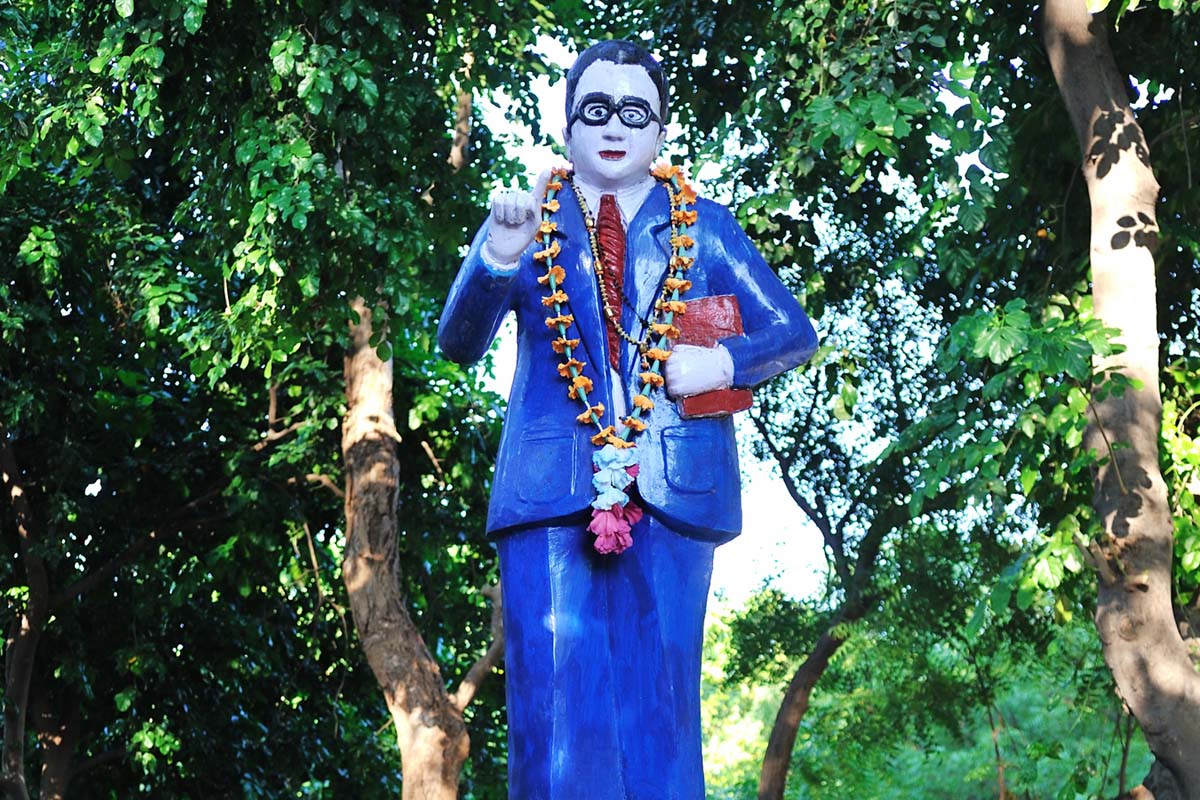Unfinished Agenda
Mahatma Gandhi, the greatest man of the twentieth century, often talked about poverty. For the prophet of non-violence, poverty was the worst form of violence.
A new book recounts how Ambedkar was that adversary who dared to challenge Gandhi politically, intellectually and morally as well. A review by Alen Paul.

(Photo: Getty Images)
History has many precious treasures to narrate. Some of the important stories of our country include the unforgettable historic war of 1857 “Mutiny”; memorable cultural relations between India and other foreign countries on a global level, some of the remarkable political meetings and the decisions taken during that time, which helped shape the foundation of India. Yet no one can ever forget the confrontational discussions between Bhimrao Ramji Ambedkar and Mahatma Gandhi that began taking its roots during the Round Table Conference of 1930-32, something which author Arundhati Roy has written in much detailed version in her book The Doctor and the Saint.
Ambedkar’s annotated edition of the famous 1936 text Annihilation of Caste was highly criticised by not only Gandhi himself, but also by the Hindu reformist organisation Jat-Pat-Todak Mandal who, after reading a copy of the text, realised it as a “frontal assualt on Hinduism itself”.
Advertisement
With obvious reasons, one can then term the refusal of accepting the text a hideous act both in the past and contemporary politics since it is not included in school or university syllabi. The author has shed light upon the great leader B R Ambedkar, who, she says, had been wrongly overshadowed by Gandhi, a fact that some people agree with, while the others disagree with much ferocity. Though it is true that both these leaders contributed their best ideas and initiatives for a better future of India while keeping their differences aside, yet the author insists that one must understand both the political developments and the power of Gandhi’s influence on the people in order to understand the issues of inequality that still exists in India and also the reasons as to why Ambedkar’s daring challenges against Gandhi’s beliefs was always suppressed by the elites of this country. According to the author’s analysis, Ambedkar’s fight for justice ~ especially for the Dalits ~ was sidelined in favour of the policies that focused on reinforcing the age-old practice of caste system. Hence, the continuance of it till date.
Advertisement
If readers notice one thing about the way the author presented her writing, then they couldn’t agree less with the fact that the author feels guilty as charged due to her given attention to Gandhi in Ambedkar’s iconic work. However the author has justified her righteous fault in the sense that given the former’s influential works and divine status that strongly occupies the minds of the Indians, it was her innate realisation that in order to understand Ambedkar’s rage against the caste system, one has to read and understand what Gandhi had to say back then in favour of the caste system. Ambedkar was one of the few who had the nerve of speaking out against casteism when it came to the “unjustified” issue of the untouchables. “To the untouchables, Hinduism is a veritable chamber of horrors… The caste system is a system that deadens, paralyses and cripples the people from helpful activity… The outcast is a by-product of the system. There will be outcastes as long as there are castes…”, to which Gandhi, who had disagreed with the belief that the same system helped to make and representing the geniuses of India, was of the view that no hierarchical barriers should erase the importance of equality between the castes.
Besides addressing the issue of inequality due to casteism in India today, the author insists that one must examine valid points of both these great politicians on casteism as whatever they commented and worked upon bears greatly on today’s politics, notwithstanding that Ambedkar was that adversary who dared to challenge Gandhi politically, intellectually and morally as well.
Advertisement